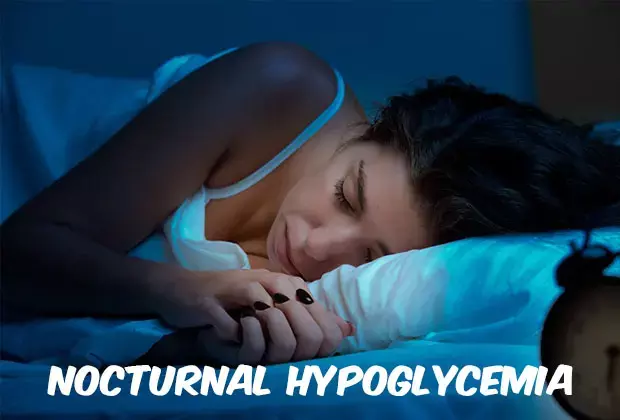- Home
- Medical news & Guidelines
- Anesthesiology
- Cardiology and CTVS
- Critical Care
- Dentistry
- Dermatology
- Diabetes and Endocrinology
- ENT
- Gastroenterology
- Medicine
- Nephrology
- Neurology
- Obstretics-Gynaecology
- Oncology
- Ophthalmology
- Orthopaedics
- Pediatrics-Neonatology
- Psychiatry
- Pulmonology
- Radiology
- Surgery
- Urology
- Laboratory Medicine
- Diet
- Nursing
- Paramedical
- Physiotherapy
- Health news
- Fact Check
- Bone Health Fact Check
- Brain Health Fact Check
- Cancer Related Fact Check
- Child Care Fact Check
- Dental and oral health fact check
- Diabetes and metabolic health fact check
- Diet and Nutrition Fact Check
- Eye and ENT Care Fact Check
- Fitness fact check
- Gut health fact check
- Heart health fact check
- Kidney health fact check
- Medical education fact check
- Men's health fact check
- Respiratory fact check
- Skin and hair care fact check
- Vaccine and Immunization fact check
- Women's health fact check
- AYUSH
- State News
- Andaman and Nicobar Islands
- Andhra Pradesh
- Arunachal Pradesh
- Assam
- Bihar
- Chandigarh
- Chattisgarh
- Dadra and Nagar Haveli
- Daman and Diu
- Delhi
- Goa
- Gujarat
- Haryana
- Himachal Pradesh
- Jammu & Kashmir
- Jharkhand
- Karnataka
- Kerala
- Ladakh
- Lakshadweep
- Madhya Pradesh
- Maharashtra
- Manipur
- Meghalaya
- Mizoram
- Nagaland
- Odisha
- Puducherry
- Punjab
- Rajasthan
- Sikkim
- Tamil Nadu
- Telangana
- Tripura
- Uttar Pradesh
- Uttrakhand
- West Bengal
- Medical Education
- Industry
Nocturnal Hypoglycemia common in ICU discharged Insulin Dependent T2D Patients: Study

In the ICU, hypoglycemia occurs more often with intensive insulin therapy and is associated with increased mortality. In a recent study, researchers have reported that the risk of hypoglycemia, predominantly at night, is common in ICU discharged insulin-dependent type 2 diabetic patients. The study findings were published in the journal Critical Care Medicine in April 2021 issue.
Several studies have evaluated the risk of hypoglycemia in hospitalized and critically ill patients. However, there is limited information about glycemic control after discharge from the ICU. Therefore, Dr Ali Abdelhamid, Yasmine and her team conducted a study to evaluate the prevalence of hypoglycemia in ICU survivors with type-2 diabetes and determine whether hypoglycemia is associated with cardiac arrhythmias.
It was a prospective, observational, two-centre study of 31 with type-2 diabetes who were discharged from ICU after greater than or equal to 24 hours with greater than or equal to one organ failure and were prescribed subcutaneous insulin. The participants underwent up to 5 days of simultaneous blinded continuous interstitial glucose monitoring and ambulatory 12-lead electrocardiogram monitoring immediately after ICU discharge during ward-based care. The researchers monitored the frequency of arrhythmias, heart rate variability, and cardiac repolarization markers, and compared them between hypoglycemia (interstitial glucose ≤ 3.5 mmol/L) and euglycemia (5–10 mmol/L) matched for the time of day. They monitored the patients for101 ± 32 hours post-ICU.
Key findings of the study were:
- Upon evaluation, the researchers observed hypoglycemia events in 12 participants (39%) and noted that it was predominantly nocturnal (40/51 hr) and asymptomatic (25/29 episodes).
- They noted that participants experiencing hypoglycemia had 2.4 ± 0.7 discrete episodes lasting 45 minutes (interquartile range, 25–140 min).
- They also noted that glucose nadir was less than or equal to 2.2 mmol/L in 34% of episodes.
- They mentioned that the longest episode of nocturnal hypoglycemia was 585 minutes with glucose nadir less than 2.2 mmol/L.
- They obtained a simultaneous electrocardiogram and continuous interstitial glucose monitoring recordings during 44 hours of hypoglycemia and 991 hours of euglycemia.
- They further found that hypoglycemia was associated with a greater risk of bradycardia but did not affect atrial or ventricular ectopics, heart rate variability, or cardiac repolarization.
The authors concluded, "In ICU survivors with insulin-treated type-2 diabetes, hypoglycemia occurs frequently and is predominantly nocturnal, asymptomatic, and prolonged."
For further information:
Medical Dialogues Bureau consists of a team of passionate medical/scientific writers, led by doctors and healthcare researchers. Our team efforts to bring you updated and timely news about the important happenings of the medical and healthcare sector. Our editorial team can be reached at editorial@medicaldialogues.in.
Dr Kamal Kant Kohli-MBBS, DTCD- a chest specialist with more than 30 years of practice and a flair for writing clinical articles, Dr Kamal Kant Kohli joined Medical Dialogues as a Chief Editor of Medical News. Besides writing articles, as an editor, he proofreads and verifies all the medical content published on Medical Dialogues including those coming from journals, studies,medical conferences,guidelines etc. Email: drkohli@medicaldialogues.in. Contact no. 011-43720751


